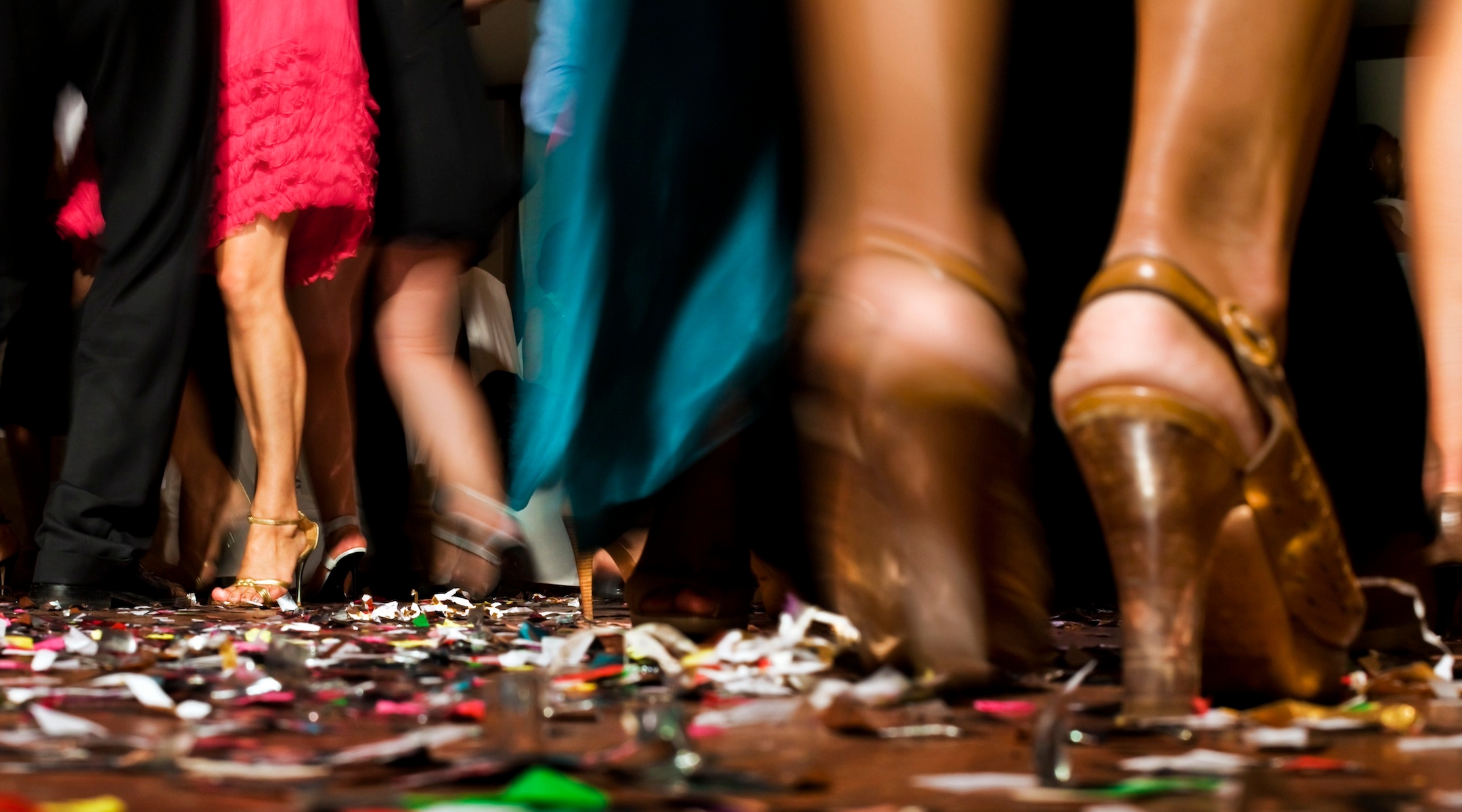In Jami Attenberg’s 2013 novel “The Middlesteins,” there’s a chapter about a joint bar and bat mitzvah told entirely from the perspective of the parents’ friends. So indistinguishable are these Cohns, Grodsteins, Weinmans and Frankens that the chapter is narrated in the first-person plural.
“We were at the age where we had almost been forgotten but were not quite old enough to be heralded for still being alive after all these years,” they explain. “Of course we were seated together at the reception, the eight of us.”
When I first read “The Middlesteins,” I was close to the age of the parents, and I thought it was the most depressing description of the disappearing act of encroaching age that I had ever read. And it only gets worse. During the reception, the couples limit themselves to one quick dance. Otherwise,
[w]e checked our watches, and thought about the errands we needed to run the next day, the walk we would take in the sunshine, the phone calls we would make to our children, some of whom lived in other states, with grandchildren we missed terribly. We had only been there for two hours, but it was already starting to feel late.
I’d like to say that after reading the book I vowed never to become “those people.” Or that I promised myself I’d be, if not the “bride at every wedding” (as Eleanor Roosevelt once described her narcissistic uncle Teddy), then the kind of guest my hosts wouldn’t regret inviting.
Instead, for perhaps a decade I was exactly those people. I treated weddings and b’nai mitzvah as chores. I complained that the music was too loud. I spent way too much time in the hallways. I calculated how soon I could leave without seeming rude.
And then, over the past two years, more and more of my friends’ kids started marrying, and I decided I wasn’t ready to fade into the not-so-good night of the “parents’ friends table.” At the next wedding, instead of trying to make myself heard over the din of “Mr. Brightside,” I pulled my wife onto the dance floor. And stayed there. I have maybe three moves, and I used them all, again and again. This time I did make a vow: that I’d stay on my two left feet until the band packed up their instruments. I’ve stuck with it.
You might credit my transformation to the pandemic, and probably should. After two-plus years in lockdown, I joined others in “letting life out of the box,” as the poet Tony Hoagland puts it.
I also had Jewish guilt — even law! — as a goad. The Talmud, in Brachot 6b, says rejoicing with the bride and groom — simchat chatan v’kallah – is a mitzvah, meaning a commandment, and no mere good deed.
And 2,000 years ago the rabbis anticipated the self-consciousness of graceless middle-aged men. If you are worried about making a fool of yourself on the dance floor, remember the story of the great scholar Rabbi Shmuel son of Rabbi Isaac, who would juggle myrtle twigs before the bride (Ketubot 17a). When Shmuel’s colleague Rabbi Zeira said such antics were beneath him, Shmuel squirted him with a seltzer bottle. (Okay, not really, but the same passage goes on immediately to explain that not only did Shmuel not demean himself or Torah, but that when he died he was blessed with an extremely rare sendoff of divine fire.)
And ultimately, I have Jewish history as inspiration. In her classic guide, “The Jewish Wedding,” Anita Diamant quotes a saying she attributes to Holocaust survivors: “To dance at a Jewish wedding is to dance on Hitler’s grave.” She continues: “For every generation, weddings are a glimpse into the future, a repudiation of past griefs, and a celebration of the here and now.”
I’ve also learned a secret over these past few years. As dumb as you might feel clomping around in a circle while holding hands with a sweaty neighbor (Jews call this “dancing”), others find it admirable. I’ve had a few people, including brides and grooms, come up to us at the end of weddings and compliment us for having closed down the dance floor.
I mean no disrespect to people who either can’t or don’t wanna dance with somebody, shake it off, shut up and dance or celebrate good times, come on. Your hosts really don’t mind. And I’ll tell you how I know this: Last Sunday we celebrated the wedding of my middle child to a brilliant, kind and beautiful woman whose smile is as radiant as his. The music was loud. The dance floor was packed. I was where I needed to be. And my pounding heart grew big enough to cherish everyone in the room, whether they were getting down or sitting it out.
Because when it comes to celebrating a young couple’s love amid a cloudy here and now, I’m Mr. Brightside.
JTA has documented Jewish history in real-time for over a century. Keep our journalism strong by joining us in supporting independent, award-winning reporting.







